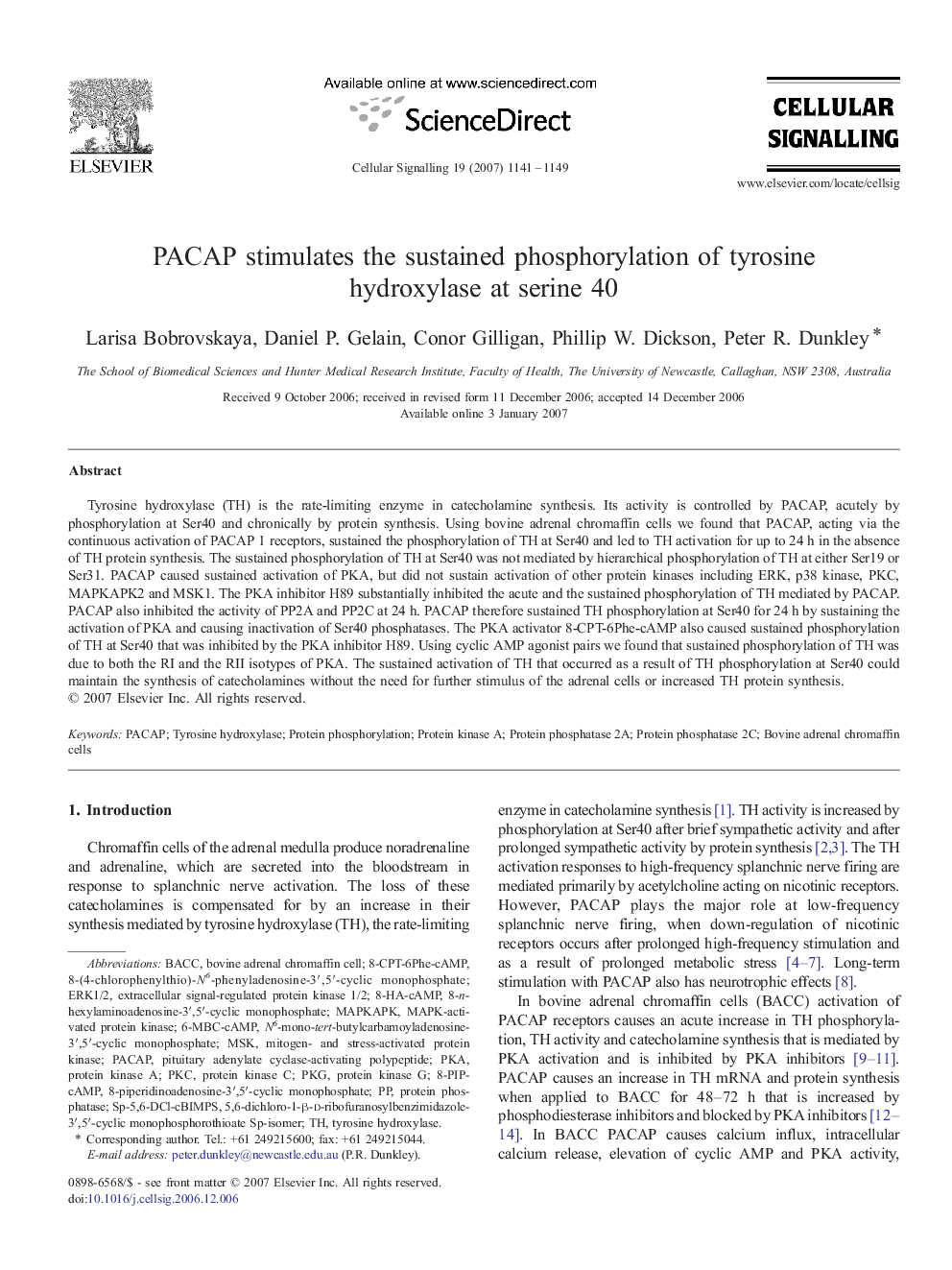| Article ID | Journal | Published Year | Pages | File Type |
|---|---|---|---|---|
| 10815974 | Cellular Signalling | 2007 | 9 Pages |
Abstract
Tyrosine hydroxylase (TH) is the rate-limiting enzyme in catecholamine synthesis. Its activity is controlled by PACAP, acutely by phosphorylation at Ser40 and chronically by protein synthesis. Using bovine adrenal chromaffin cells we found that PACAP, acting via the continuous activation of PACAP 1 receptors, sustained the phosphorylation of TH at Ser40 and led to TH activation for up to 24Â h in the absence of TH protein synthesis. The sustained phosphorylation of TH at Ser40 was not mediated by hierarchical phosphorylation of TH at either Ser19 or Ser31. PACAP caused sustained activation of PKA, but did not sustain activation of other protein kinases including ERK, p38 kinase, PKC, MAPKAPK2 and MSK1. The PKA inhibitor H89 substantially inhibited the acute and the sustained phosphorylation of TH mediated by PACAP. PACAP also inhibited the activity of PP2A and PP2C at 24Â h. PACAP therefore sustained TH phosphorylation at Ser40 for 24Â h by sustaining the activation of PKA and causing inactivation of Ser40 phosphatases. The PKA activator 8-CPT-6Phe-cAMP also caused sustained phosphorylation of TH at Ser40 that was inhibited by the PKA inhibitor H89. Using cyclic AMP agonist pairs we found that sustained phosphorylation of TH was due to both the RI and the RII isotypes of PKA. The sustained activation of TH that occurred as a result of TH phosphorylation at Ser40 could maintain the synthesis of catecholamines without the need for further stimulus of the adrenal cells or increased TH protein synthesis.
Keywords
pKaSp-5,6-DCl-cBIMPSPACAPMAPKAPKPKCMAPK-activated protein kinasePKGtyrosine hydroxylase.MSKERK1/2tyrosine hydroxylaseBovine adrenal chromaffin cellsProtein phosphorylationProtein phosphataseprotein phosphatase 2Aprotein phosphatase 2Cextracellular signal-regulated protein kinase 1/2protein kinase Aprotein kinase GProtein kinase Cmitogen- and stress-activated protein kinasepituitary adenylate cyclase-activating polypeptide
Related Topics
Life Sciences
Biochemistry, Genetics and Molecular Biology
Biochemistry
Authors
Larisa Bobrovskaya, Daniel P. Gelain, Conor Gilligan, Phillip W. Dickson, Peter R. Dunkley,
